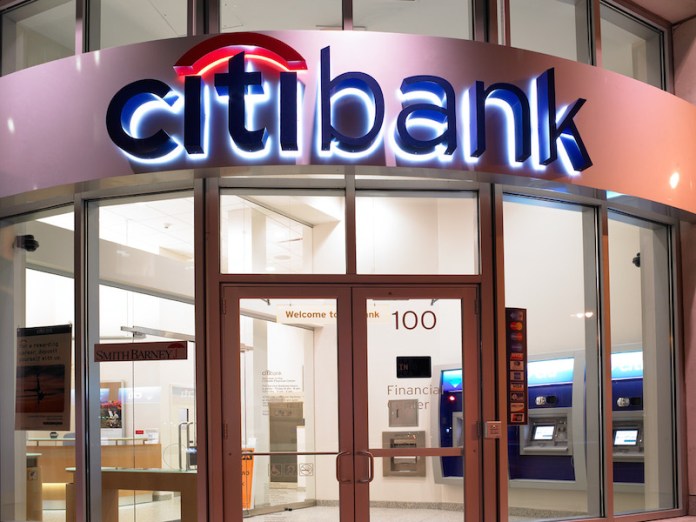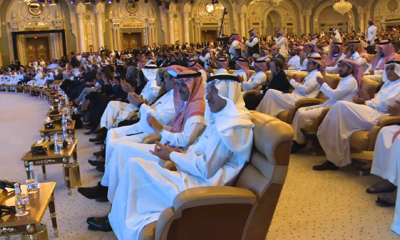- Citigroup Faces Saudi Setback as Billionaire Backer Arrested
Citigroup Inc. may face new obstacles to rebuilding its Saudi Arabia business after the bank’s longstanding shareholder and promoter was arrested in an anti-corruption drive.
Prince Alwaleed bin Talal, the 62-year-old Saudi billionaire, was detained by authorities on Saturday without disclosure of the allegations. The government also named former HSBC Holdings Plc Middle East and North Africa head Mohammad Al Tuwaijri as economy and planning minister as part of the crackdown.
International lenders are expanding their foothold in the kingdom as the nation overhauls its economy and plans to list Saudi Arabian Oil Co., or Aramco, in what could be the largest initial public offering in history. Citigroup, which lost its Saudi investment banking license by selling its stake in Samba Financial Group in 2004, has been plotting a return. The bank got a new license in April.
Alwaleed’s arrest is “likely to make things more difficult for Citigroup in Saudi due to companies and individuals being cautious of any association,” said Emad Mostaque, co-chief investment officer of emerging-markets hedge fund Capricorn Fund Managers Ltd. The bank had a “turbulent time in Saudi Arabia after they backed out of Samba and have steadily built their presence back up,” he said.
A spokeswoman for Citigroup declined to comment.
Citi’s Challenge
Alwaleed’s Kingdom Holding Co., which has held Citigroup shares since 1991, increased its stake during the global financial crisis as shares plunged. While the size of Alwaleed’s position isn’t disclosed, neither he nor his company were listed among owners with a stake of 5 percent or more in the New York-based lender’s latest proxy filing this year.
Citigroup tried and failed to get a license to return to Saudi Arabia in 2006 and again in 2010, despite lobbying by Alwaleed. The prince said in an interview that year that he was helping the bank set up in the kingdom.
If Alwaleed faces charges even remotely connected to the licensing of Citigroup, its ability to get future business from the kingdom would be diminished, said Joice Mathew, head of equity research at United Securities in Muscat. “It would no longer be a cakewalk for them as we anticipated earlier. Their license is there to stay, but they would have to sweat a lot for generating business.”
Broad Support
The bank’s base of support in Saudi Arabia is broader than Alwaleed, according to two people familiar with the company’s operations in the kingdom who asked to remain anonymous. Citigroup executives have long cultivated relationships with power brokers, like members of the royal family or high-ranking officials, and don’t rely on Alwaleed for bank business such as licensing, one of them said.
“While Citigroup’s Saudi Arabian operations are not currently a material contributor to Citigroup’s bottom line, it was being viewed as a significant source of future growth as the company sought to capitalize on the pending financial reforms in that country,” Compass Point Research & Trading LLC banking analyst Charles Peabody said in a note to clients.
Citigroup in October appointed Carmen Haddad to oversee its business in the kingdom, according to an internal memo. The lender aims to have about half of its investment banking team in place by December and be fully staffed in the first quarter of 2018, Haddad said in an interview last month in Riyadh. When the bank opens in the country, it will be able to pitch for local advisory work, including IPOs and takeovers in which the target company is based in the kingdom.
Ties That Bind
Ayham Kamel, head of the Middle East and North Africa department at Eurasia Group Ltd., expects the impact on Citigroup’s relationship with the kingdom to be short lived.
“For the long term, Citigroup has an institutional relation with Saudi Arabia and it’s one of the largest banks in the world,” he said. “I don’t think the arrest signals that Citigroup will be excluded from the market.”
Even without a license, Citigroup won leading roles in the kingdom’s record-breaking $17.5 billion bond sale in 2016 and $9 billion Islamic bond earlier this year.
Saudi national Al Tuwaijri, who replaced former minister Adel Fakeih after his arrest over the weekend, was HSBC’s regional CEO in October 2013 after a long history with the bank. The British lender is one of the most active international investment banks through its local unit — HSBC Saudi Arabia, in which it owns a 49 percent stake. It also holds a 40 percent stake in Saudi British Bank.
The bank is said to be advising Aramco on its share sale and also working with the government on privatizing the kingdom’s stock exchange and flour mills. HSBC had lead roles on the country’s dollar bond sale last year and Islamic bond sale in April.
No Discrimination
“HSBC has some market advantages because of its deep networking in Asia which Saudi Arabia needs,” said Eurasia Group’s Kamel. “But I don’t think we are necessarily going to move to a scenario where there is overt discrimination.”
Heidi Ashley, a London-based spokeswoman for HSBC, declined to comment.
Al Tuwaijri has already played a key role in shaping Saudi economic and fiscal policy, serving as vice minister for economy and planning starting in May 2016. He also heads the finance committee of a powerful economic council chaired by Crown Prince Mohammed bin Salman and is in charge of privatizations in the kingdom.
A former Saudi air force pilot, Al Tuwaijri joined Saudi British Bank in 1995 before leaving to become senior country officer for JPMorgan Chase & Co. in the kingdom in 2007, according to HSBC’s website. He rejoined the London-based bank in 2010.
Alwaleed’s arrest doesn’t necessarily mean “that huge business will flow to HSBC as the market is incredibly competitive in Saudi Arabia and the government is looking for as broad a base of foreign banks involved as possible,” said Capricorn’s Mostaque.





 Naira4 weeks ago
Naira4 weeks ago


 Naira3 weeks ago
Naira3 weeks ago


 News4 weeks ago
News4 weeks ago
 Travel4 weeks ago
Travel4 weeks ago




 Naira4 weeks ago
Naira4 weeks ago


 Jobs3 weeks ago
Jobs3 weeks ago
 Naira3 weeks ago
Naira3 weeks ago




 Travel3 weeks ago
Travel3 weeks ago


















